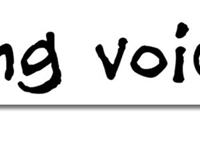 How did we come to see adolescence as a problem?
How did we come to see adolescence as a problem?
Worse yet, how did we come to accept some dodgy doctor’s treament of adolescence as some kind of diagnosable mental illness?
and one that is best dealt with by administering life-long medication with expensive, colourful little pills about which we know very little ? Really?
We know a lot more about how we learn and how we’ve evolved and how our brain works than we did even ten years ago.
Evolutionary and developmental science suggests adolesence is not an abberation or a problem of lost cuteness- but actuially an adaption that enabled us to both survive as a species and to make progress as a society.
The rebelliousness of adolescence is a desire to find and express new ways of living and being.
So, how come our society seems so intent on diagnosig it as any number of disorders and to medicate adolescence into oblivion?
Perhaps that’s one reason why so many young people grow up feeling like they don’t belong.
The text and images below are from the short [5min] animation born to learn. The viseo is at the end of the post.
Born to learn
“Ever feel like you’re capable of far more than what society expects of you?
Remember being a teenager at school being less about a passion to learn and more about getting good grades?
How many times did you sit in class bored and just desperate to just get away!
Every teen’s felt that.
.
.
.
.
And just wanting to play around with stuff, pull things apart, and knock things together.
.
.
 …and grown-ups saying NO! NO! NO!
…and grown-ups saying NO! NO! NO!
.
.
.
.
…o r being called GOOD for sitting still?
r being called GOOD for sitting still?
…or naughty when you couldn’t bear to sit still any longer?
.
.
.
 It’s all completely well intentioned of course but that doesn’t make it any less …..
It’s all completely well intentioned of course but that doesn’t make it any less …..
Because the fact is our capacity to create and learn knows no bounds.
And the latest research proves it.
The invention of M RI scans only in the last 25 years has allowed scientist to see which parts of the brain are used by different kind of thinking.
RI scans only in the last 25 years has allowed scientist to see which parts of the brain are used by different kind of thinking.
We now know infinitely more than we did about how we learn and what makes up human intelligence
…and it’s extraordinary
So, want to know what you’re really capable of?
Let’s start at the beginning: a baby’s brain is amazing.
It doesn’t take nine months to create –
it’s taken 7million years and around 350,000 generations.
All the skills, knowledge and talents cultivated by our ancestors are stored inside it.
 These are like numerous software programs that can only be activated by the baby engaging with its environment.
These are like numerous software programs that can only be activated by the baby engaging with its environment.
If not activated at the appropriate time, they simply disappear.
 Take language – if a child doesn’t hear language by around the age of eight they may never learn to speak.
Take language – if a child doesn’t hear language by around the age of eight they may never learn to speak.
So, you can see just how important our interactions are – they ignite our dormant intelligence and reinforce it too.
There’s something else:
 We’ve evolved to learn by looking at things from different perspectives and making connections between things and we do that through play.
We’ve evolved to learn by looking at things from different perspectives and making connections between things and we do that through play.
So wouldn’t it be amazing if we bore all this in mind when raising kids?
Letting them play when they’re little and when they’re older too?
 Charles Darwin’s teacher said he’d never amount to much because he spent too much time playing with insects.
Charles Darwin’s teacher said he’d never amount to much because he spent too much time playing with insects.
So let children play – because it’s never just play.
.
 Of course it takes more time and energy to do this
Of course it takes more time and energy to do this
..but when you’re deciding where to focus resources for kids learning you couldn’t do better than focusing on pre-puberty.
That’s when we learn by copying the people around us.
 After twelve, or thereabouts, it’s all change…
After twelve, or thereabouts, it’s all change…
Say goodbye to pliable easy child and hello to rebellious, challenging teenager
euurgh! Where did that cute baby go?

Ah well, let’s have another look at that brain.
See what’s happening?
Loads of the connections made through childhood are breaking up and reforming.
 From around the age of about twelve to twenty the equivalent of an earthquake takes place in the young person’s brain.
From around the age of about twelve to twenty the equivalent of an earthquake takes place in the young person’s brain.
No more going along with what the grown-ups say. The adolescent brain needs to go its own way.
Oh no! Say parents
Oh yes! Say evolutionary scientists.
 Because if we hadn’t developed this urge to do things differently, we would never have made it this far.
Because if we hadn’t developed this urge to do things differently, we would never have made it this far.
Up until about sixty or seventy thousand years ago it was fine for children to grow up like their parents.
.
 But then along came the last ice age.
But then along came the last ice age.
Thank goodness for the handful of our ancestors who chose to break away from their doomed parents freezing to death in the ancestral caves?
.
 They built rafts and set off across the ocean hoping to find a place with a warmer climate.
They built rafts and set off across the ocean hoping to find a place with a warmer climate.
Critically this made risk-taking the essential feature of adolescence
We shouldn’t belittle adolescence; we should be honoring it for what it really is…
 ..the defining struggle, the moment when the next generation challenges the status quo and pioneers new ways of thinking and being that ensures our survival.
..the defining struggle, the moment when the next generation challenges the status quo and pioneers new ways of thinking and being that ensures our survival.
.
.
 Now, just imagine if we gave adolescents the freedom to undertake that struggle.
Now, just imagine if we gave adolescents the freedom to undertake that struggle.
Rather than force them to sit passively in class, how about trusting that their earlier clone-like learning now enables adolescents to spread their wings and work things out for themselves.
 If that sounds terrifying, it needn’t be.
If that sounds terrifying, it needn’t be.
because if we allowed their natural curiosity to flourish in childhood they’ll be bursting with a longing to learn and climb un-scaled mountains of the mind.
That’s not scary, that’s exhilarating!
This is the way we’ve evolved to be.
It’s what make us fulfilled, well-adjusted human beings.
 Let’s stop trying to living in a way that so goes against how we are hard wired to live
Let’s stop trying to living in a way that so goes against how we are hard wired to live
Let’s allow ourselves and the next generation to reclaim the incredible gift of our ancestors.
Adolescence is not a problem it’s an opportunity.
born to learn
http://www.born-to-learn.org
Related articles
- Adolescent Stress Linked to Severe Adult Mental Illness (whitenewsnow.com)







































































































brilliant – loved it
LikeLike